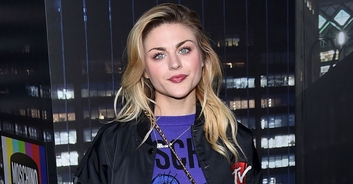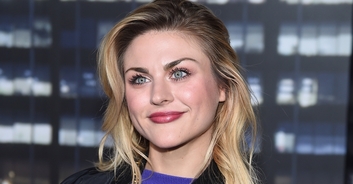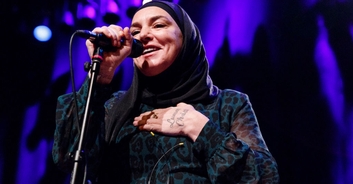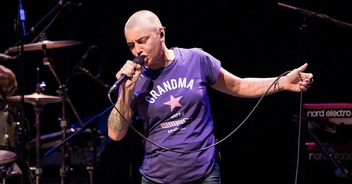Kurt Cobain was found dead at his home in Seattle on April 8, 1994. He had died from self-inflicted gunshot wound to the head on April 5, at he age of 27.
During his final years, the musician struggled with drug addiction and chronic depression. Now, 25 years later, fans of his music and those who knew him are taking time to reflect on his short life.
Frances Bean Cobain, the only daughter of the Nirvana frontman and Courtney Love, is now 26 - almost as old as her father was when he passed away. She spoke out on suicide and mental health on Friday, using the 25th anniversary of her father's death as an opportunity to share her support with those struggling.
Taking to Instagram, she shared the phone number for the National Suicide Prevention Lifeline, as well as a message for her followers, which read:
"If you are struggling with your mental health and need someone to talk to please do not be afraid to reach out to your friends, neighbors, parents, counselors, teachers or even strangers on the internet. Needing help is not weakness. Let's end the stigma and shame towards the struggle with mental health."

Frances has previously spoken about her father's death with The Rolling Stone. “Kurt got to the point where he eventually had to sacrifice every bit of who he was to his art, because the world demanded it of him,” she said during the interview.
“I think that was one of the main triggers as to why he felt he didn’t want to be here and everyone would be happier without him. In reality, if he had lived, I would have had a dad. And that would have been an incredible experience.”
Danny Goldberg, the former manager for Nirvana, also spoke about this topic recently. Speaking to Yahoo Entertainment on Thursday, he recalled the last time he had seen Cobain in person - at an intervention staged a week before his death.
"I was in New York, and Courtney [Love] called and asked if I would come and be part of an intervention," Goldberg said. "She was really worried about Kurt, said it was the worst she'd ever seen him and so forth."
“My message was just, ‘Whatever is bothering you, you can’t make a good decision the way you’re strung-out. Get clean, and then whatever you want to do, I’ll help you do whatever you want to do. But you can’t make any good decisions this way. It is no good future.’ Just the typical anti-drug, get-clean plea.”
He went on to speak about how he felt about the shocking suicide, saying he will "never get over it" but is still glad he got to know him in the time he was alive.
"Any time somebody kills themselves, I think people around them always wonder if there's something they could've done. I don't really believe there is, because certainly, I've read some, if you read what psychiatrists or philosophers, or priests, or rabbis, or yogis... people who've studied this stuff, nobody seems to have come up with any particular solution to it.
"I'll never get over it. Nobody who cared about him will. And no one who cared about less famous people who killed themselves will ever get over it. But it's what happened, it's part of the mystery of the human condition, and I love him anyway."
"I'm glad he was alive for those 27 years, I wish he hadn't done it," he concluded. "I'm glad I got to know him, and that the world got to know his music."





.jpg_oN3Sm5?tr=h-184)